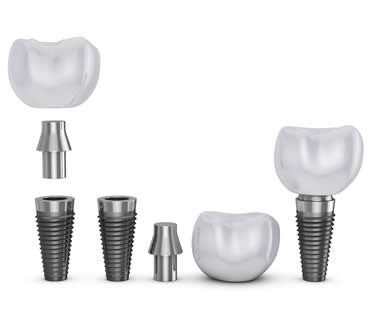
by Dr. Adkins | Dec 17, 2021 | Blog, Dental Topics 2, Family Dentistry
Facing dental issues are a fact of life, no matter your age. The likelihood is almost certain that at least one member of your family will require dental treatment at some point, not to mention the need for regular checkups and cleanings. The promise of dental care being required by every family member means that it can be beneficial to have a family dentist who can take care of each one’s oral health.
Although you might choose to seek oral care from a general dentist, there are some unique advantages that family dentists offer. First and foremost, a family dentist treats every member of your family no matter their age. This type of dental practice is comfortable handling any age group, while a general practice might not be as prepared for the young and old and everyone in between.
Another benefit is that you can find a single family dental practice and not have to keep looking for a dentist for each family member. You can convey your family information one time to one office, and the staff will get to know all of you. The dentist and staff will learn about the oral health of every family member, and you can feel confident that each person is receiving the same quality care.
Once you choose a family dentist, everyone will know what office to go to and may even be able to make joint appointments. It will be easy to communicate with a single location, and you’ll grow comfortable in dealing with the same group of people for every family member. Many people appreciate having a long-term professional healthcare relationship, and feeling confident in the care and experience each member of your family will have there.
If you live in the McDonough area contact us today

by Dr. Adkins | Nov 12, 2021 | Blog, Dental Topics 2, Family Dentistry
You might wonder what the difference is between general dentistry and family dentistry. They are quite similar but have a few key distinctions. Finding the right dental health professional for you and your family is very important, and maintaining checkups and treatment is part of the process.
One major element of family dentistry is that these professionals accepts patients of all ages, from babies to senior adults. Every member of your family can visit the same office and receive consistent quality care that you expect from your chosen dentist. Each age group has unique needs that can be addressed by a family dentist who is trained and experienced in handling those concerns.
Family dentists provide treatment to both repair existing problems. Diagnosing oral health issues and then performing procedures such as fillings are common parts of the job. Your family dentist may recommend that some services be treated by a specialist, like oral surgeons for dental implants, endodontists for root canal therapy, or orthodontists for braces. However some family dentists perform those types of procedures, so it depends your service provider.
Family dentists also perform treatments to help avoid future oral health problems. Things like cleanings, fluoride treatments, and sealant application are all routine tasks. It is vital to schedule dental checkups every six months to catch and treat problems before they have a chance to advance. Some offices provide teeth whitening, and all family dentists are well-versed in training your family members in the best techniques for home dental hygiene.
To increase the likelihood of you and your loved ones keeping appointments, choose a family dentist with a convenient office location. Also, find a practice that is comfortable and appealing to family members. Younger children may benefit from distraction items such as television or video games. If dental anxiety is an issue for anyone, a practice that offers sedation dentistry may be a good choice.
Ask coworkers, friends, and neighbors for recommendations for a good family dentist in your area. Visit the practice to ensure it is right for you, and then make and keep appointments for everyone in your family.
We look forward to seeing you in our McDonough dental office

by Dr. Adkins | Nov 5, 2021 | Blog, Cosmetic Dentistry, Dental Topics 2
Traditional dentistry focuses on maintaining your oral health and treating any diseases you might have, while cosmetic dentistry is all about the way your smile looks. The goal of cosmetic dentists is to help you achieve the smile you’ve always wanted. It is becoming an increasingly popular area of dentistry because so many people want to look their best, and one of the utmost ways to do that is to have a beautiful smile.
There are numerous treatments and procedures available in cosmetic dentistry today. Here are some of the most popular ways that patients seek to transform their smiles:
- Teeth whitening, sometimes referred to as bleaching, relieves stains and discolorations that are affecting your teeth. It is a simple and quick process when performed by your cosmetic dentist, often taking only an hour out of your day. The results are usually amazing, making your teeth many shades whiter and eliminating embarrassing stains.
- Dental veneers cover up all kinds of smile imperfections. Problems like chips, cracks, discoloration, misalignment and more can be hidden under veneers. These thin porcelain shells are customized only for you, and are cemented directly onto the fronts of your teeth. A small amount of your tooth enamel must be removed in preparing your teeth, so veneers are a permanent solution for transforming your smile.
- Dental implants are a great solution for replacing missing teeth. Instead of going through the hassles associated with dentures or bridges, implants are a permanent restoration that becomes part of your body. A titanium rod is surgically placed into your jaw bone so that it fuses with the bone as it heals, and then an artificial tooth is placed on top. Implants are a secure and attractive way to restore your smile.
- Crowns, also called caps, are customized for every patient to fit over an existing tooth that has been severely damaged. They are often used to correctly shape broken, chipped or uneven teeth. Made of porcelain or acrylic with metal, crowns are strong and able to withstand biting forces that other restorations might not tolerate well.
Our dental office is located in McDonough

by Dr. Adkins | Oct 29, 2021 | Blog, Cosmetic Dentistry, Dental Topics 2
Due to the increased interest in cosmetic dentistry, many family dentists are becoming trained to offer more extensive procedures and treatments geared to improve the appearance of your smile. Many of these treatments are quick and painless, and can offer almost instant results. Some of the cosmetic dentistry options offered by your family dentist may include:
- Professional teeth whitening to improve the color and brightness of dark, dingy, or discolored teeth
- Placement of dental veneers to improve the look of gapped, stained, or crooked teeth
- Replacement of old or unattractive metal fillings with more natural, tooth-colored materials
- Placement of crowns and bridges to repair and replace missing or severely damaged teeth
- Correction of small spaces or gaps between teeth by bonding with tooth-colored composite resin
- Insertion of dental implants to replace missing teeth
- Straightening of teeth and correction of bite problems with braces or Invisalign
Because your family dentist is already aware of your family’s dental history, it will be simple to recommend treatment plans. With this knowledge, your dentist can also quickly and expertly assess if you or other members of your family are suitable candidates for the procedures you are seeking. Your family dentist can perform all the same services as both a pediatric dentist and a general dentist, and will be able to address the cosmetic dental concerns of every member of your family. Family dentists can provide advice as to which procedures are age appropriate and give guidelines for when treatment is recommended.
If anyone in your family is not pleased with the appearance of their teeth, consult first with your family dentist to find out what cosmetic dental procedures and treatments are offered to improve the quality of their smile.
If you live in the McDonough area contact us today

by Dr. Adkins | Oct 15, 2021 | Blog, Dental Topics 2, Implant Dentistry
Dental implants are artificial teeth that mimic your natural tooth roots and are placed directly into your jawbone to provide optimal support for dental crowns, bridges and removable prosthodontics such as dentures. If you are considering dental implant therapy, please use the following guide to answer some of your questions.
- Am I a candidate for dental implant treatment? Dental implants can be used in healthy patients whose jawbones have completed growing and who have sufficient quality and quantity of jawbone to have a healthy implantation.
- Is dental implant treatment safe? Dentists agree that in healthy patients who are good candidates for the procedure, dental implants are low-risk.
- Will I be in a lot of pain during dental implant surgery? Dental implant surgery is typically performed as an outpatient procedure in your dentist’s office under local anesthesia.
- Does it take a long time to undergo the procedure? Treatment can generally be performed in under an hour, depending on the number of implants required.
- Is recovery painful? Healing from dental implant surgery is typically quick and easy for most healthy people. Any lingering pain can be treated with over-the-counter pain relievers.
- When will I get my new teeth? Implants must fuse to the bone in a process called ossification, a process that can take up to six months. In most cases, temporary teeth will be in place during this time period.
- How do I care for my dental implants? You will take care of your implants in the same way you would care for your natural teeth. Brush twice a day or after meals, especially before bedtime. Floss daily and continue to maintain regular dental appointments for checkups and preventative care.
- How long do dental implants last? Dental implants can last for twenty or thirty years if you care for them properly.
Schedule your appointment at our McDonough dental office

by Dr. Adkins | Oct 8, 2021 | Blog, Cosmetic Dentistry, Dental Topics 2
Special occasions like class reunions and weddings where photos are going to be taken are important. You will want to look your best, especially when you look back on the photos in years to come. When you look in your mirror, are you noticing that your smile seems less than its best? Could your look use some refreshing?
As time passes, our smiles age. Whether you realize it or not, your teeth are discoloring a little bit every day. Discoloration can come from the food we consume, such as blueberries, beets, blackberries, balsamic vinegar or soy sauce. Drinking tea, red wine, coffee or dark soda can also affect the brightness of your smile. Smoking leaves teeth looking yellow and dingy.
As well as discoloring, our teeth slowly wear away. The outer, whiter layer of enamel will thin with age, revealing the yellower layer of dentin underneath. The length of a tooth is also reduced with age as teeth wear away with natural, everyday use. Short, discolored teeth send a signal of old age whether we intend them to or not.
Composite bonding, porcelain or composite resin veneers and dental crowns can help you achieve a brighter, whiter, more even smile. Veneers can even correct gaps and hide chipped or malformed teeth. Dental implants can be an excellent solution to a missing tooth. A smile that is badly misaligned might require braces or some other kind of orthodontia to achieve optimal results.
Your cosmetic dentist can work with you to determine what steps should be taken to address your particular smile concerns and rejuvenate your smile, making you look younger and more refreshed. You will begin to see the positive responses from people who will be able to see you at your youthful best, allowing you to be your most confident, most comfortable self. The changes you make now can change your smile for years to come.
We look forward to seeing you in our McDonough dental office








 (470) 665-5292
(470) 665-5292  E-Mail Us
E-Mail Us 
